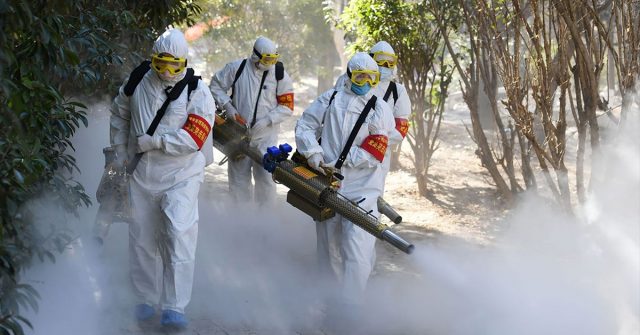One week ago, WHO (World Health Organization) declared the coronavirus crisis a pandemic. Global deaths and infections from the virus around the world have increased exponentially and surpassed those from China drastically. As of today, COVID-19 has officially killed 6,684 people worldwide and 69 people in the US.
But as the Coronavirus epidemic rapidly spirals upward, one cannot help but wonder…
Are we paying enough attention to the economic aspect of this crisis?
Or do our governments see this only as a health crisis, without considering the potential consequences that this vast outbreak will have on our economic systems in the long term?
Analysts claim that the trillion of dollars lost from the financial markets last week will be just the beginning of the economic collapse if the governments don’t step in right now and take charge of the situation. The pandemic has already started affecting the world economically, especially since it formed a perfect storm with stock market crashes, and oil war between Russia and Saudi Arabia, and the spilling over of an actual war in Syria into another potential migrant crisis writes Omar Hassan from the Independent UK.
Fighting the virus and preventing the further spread of COVID-19 is our countries primary focus right now, but we shouldn’t make the mistake of avoiding the vaccination of our economies against the bigger pandemic of panic that is threatening us all. Right now the consequences of the coronavirus outbreaks come in the form of deaths and infections.
But what happens when it strikes our sources of income and we’re no longer capable of paying out bills or keeping our home safe?
“Small businesses are struggling, supply chains are starting to dry up, leaving them without products and essential materials. Factory closures in China have led to a record low in the country’s Purchasing Manager’s Index which measures manufacturing output. China is the world’s largest exporter and is responsible for a third of global manufacturing, so China’s problem is everyone’s problem — even in the midst of a trade war between the White House and Beijing .”
“It is difficult to imagine Italy not entering a recession (the world’s ninth-largest economy is now on lockdown). It is also difficult to imagine that failing to affect Europe and its largest trading partner, the United States. And it is impossible to see how any of this will not add up to a global downturn unless governments step in faster and harder than they did 12 years ago during the last financial crisis.”
Fortunately, he goes on to say that leaders from all over the world are starting to act. President Trump has pushed through overdue payroll tax cuts and help for hourly workers — measures that will help both employers and employees survive. In the UK, Chancellor Rishi Sunak today unveiled a ‘Coronavirus Budget’. Denmark has also announced that will aid private companies by paying 75% of their salaries. But everyone needs to think bigger if they want to properly deal with how this new factor changes the status quo.
“To survive these shifts, the US, UK, and others will need to protect the future of their businesses, large and small, and look for opportunities to benefit from the new economic world order, not deny it. Ignoring these changes will be even more damaging than any flu pandemic,” he says.
In terms of the Forex market, there have been no huge changes in the economic situation in China, but those of its peers in the Asia-Pacific region have been definitely affected. One can use a forex pivot points strategy to determine potential turning points (using pivot points will enable you to determine when market sentiment goes from bullish to bearish or the other way around).
What is your opinion on this? Feel free to share your arguments on this topic in the comment section below.
Source: Independent UK





